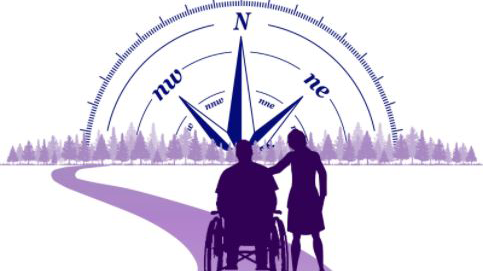Home means different things to different people. Home could mean anywhere the family gathers or it could mean the place that holds all of your belongings. It can also mean the place where you created many of your lifetime memories.
So when a person with Alzheimer’s Disease (AD) or dementia says “I want to go home,” it doesn’t necessarily mean they want to go back to the house you grew up in. They also don’t want to hear “You ARE home now.” or “This is your new home now.”
If they now live in an assisted living or memory care community, change their focus to something that has history for them… a photo, a souvenir or jewelry… and say “I remember when you took/got/bought this. It was …” and then provide the details of that item for them. Do not ask “Do you remember this?” as that’s not a fair question and it will embarrass or frustrate them. Let them touch and hold the item and ask them where they’d like it placed so they can easily see it.
One item that women with Alzheimer’s or dementia seem very attached to is their handbag or purse. Since you don’t want to leave valuables at the assisted living or memory care community, find some inexpensive items that you can put in the purse such as chapstick, a mirror, a comb or brush, maybe some fake money that they can give to people for tips, anything that makes them feel normal. This can also be applied to men with their wallets.
Place photos on the walls near their bed so when they go to sleep and wake up, they see familiar faces. Decorate their room in the style they had in their previous home (same colors, bedspread, etc.). If they’re wheelchair bound, put stickers on the chair or use pipecleaner flowers (I got mine at Target) to decorate the chair.
One thing I can tell is they ARE inside that body. You won’t see that every day you visit but out of nowhere will come a gesture, a look or even sometimes a word that lets you know they’re in there.
Remember that “home” is that place where their memories are so when you visit, bring things or call attention to things that will stimulate those memories and make adjusting to their new home easier.
Phrases to avoid:
- Do you remember?
- That’s not right.
- That’s not how it happened.
- Don’t you know that?
- I told you that yesterday.
- You know the answer to that.
